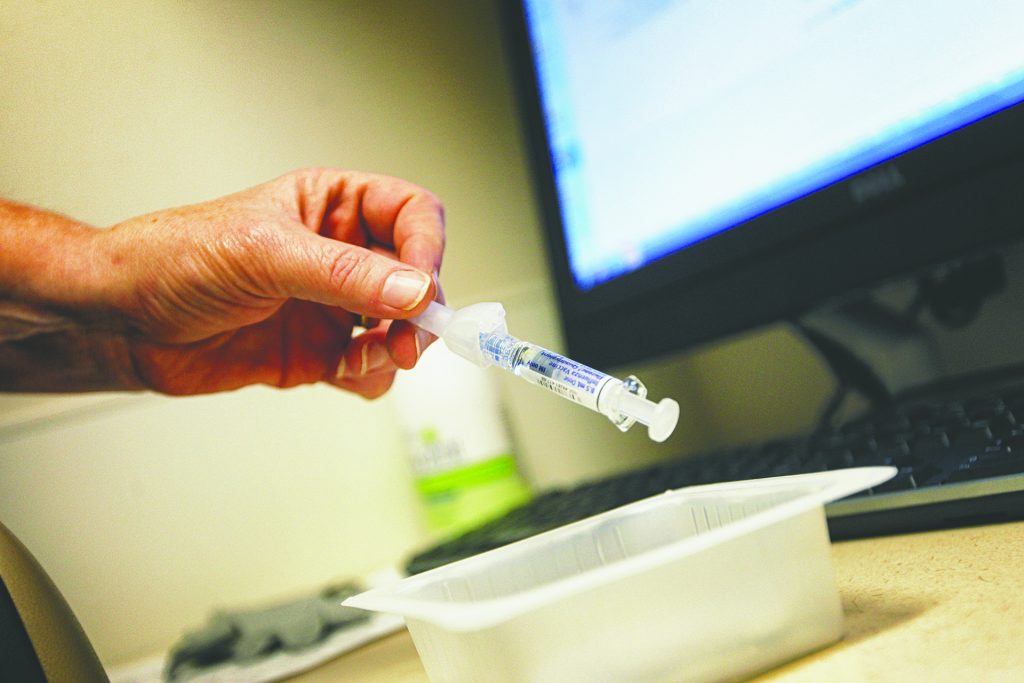While the Iowa flu season is just getting started, it’s hitting hard, especially in the Iowa City area.
The Walgreens Flu Index, an interactive map of the United States showing which populations are experiencing the highest incidence of flu, ranked Iowa as No. 2 with the highest flu activity for the week of Jan. 7 through Jan. 13. Walgreens’ Designated Market Areas are also ranked, and the Cedar Rapids-Waterloo-Iowa City & Dubuque market area is ranked 17th in the nation.
Jorge Salinas, a resident at the University of Iowa Hospitals and Clinics, said every year, the hospital monitors the flu cases it sees to create a baseline number. The number has been increasing over the past few weeks, and UIHC has taken measures to prevent non-flu patients from contracting the illness, including limiting the numbers of visitors and requiring everyone to wear masks around the more-susceptible patients.
Salinas said while the number of flu cases seems to be increasing more than usual, there is no reason to believe that it will be as severe for the rest of the season. Past flu seasons vary widely on when and how many times the different types of influenza are at their peaks, so it’s very hard to predict.
“It’s probably too early to tell … at this point, the season is just beginning, we seem to be having more cases than in previous years, but it is too early to tell for sure,” Salinas said.
Related Stories: Many resources available for students to receive flu shots
The flu season begins around October each year, and activity can last as long as May, according to the Centers for Disease Control & Prevention. December through February sees flu activity at its peak in the United States.
Student Health & Wellness is prepared for a hard flu season, Associate Director for Clinical Outreach Lisa James said in an email to The Daily Iowan. The past few flu seasons have been fairly mild, so this year could seem fairly bad by comparison, and in the midst of the peak of the season, things will likely get worse from here.
“With the entire country having widespread flu, it’s only a matter of time before our student numbers increase significantly,” James said. “Like other campuses and communities, we are preparing for a more severe flu season, based on reports we are hearing.”
The nation is dealing with a shortage of IV bags, which are used to give fluids and necessary medicine to patients with severe cases of influenza. Salinas said the UIHC does have a shortage, but it’s not affecting how health-care workers care for their patients.
“We are for sure being affected by the shortage, but that is not currently affecting our ability to provide IV fluids or antibiotics to our sick patients with influenza,” he said.
With many students living and learning in close quarters, James and Salinas said it is more important than ever to practice good hygiene, keep immune systems up with healthy food, get sleep and exercise, and most importantly, get a flu shot.
“Even though the effectiveness is not 100 percent, if you acquire influenza, it will prevent you from getting a serious disease and requiring hospitalization,” Salinas said.
Gregory Thompson, the director of Resident Education for UI Housing & Dining, said Student Health and Wellness keeps dorm officials in the loop about illnesses potentially in the dining halls, so going in for an appointment is important, even if it might not be the flu.



